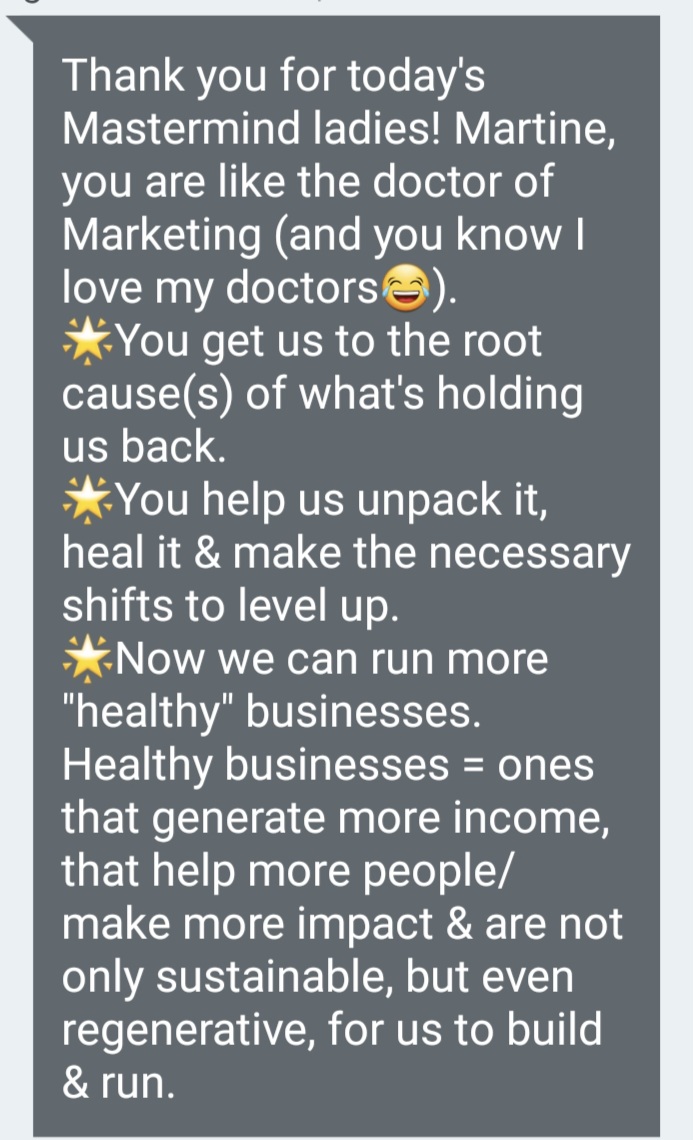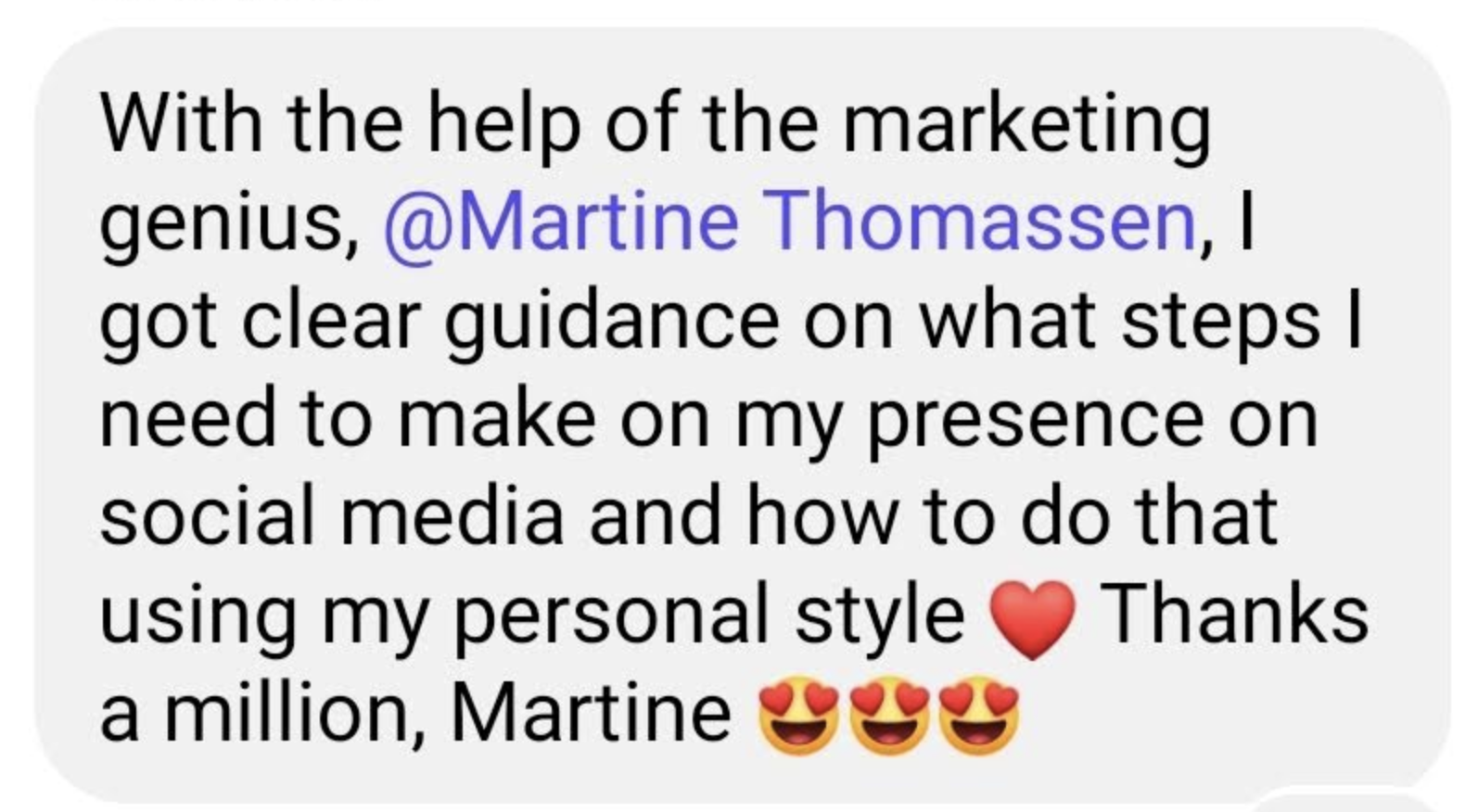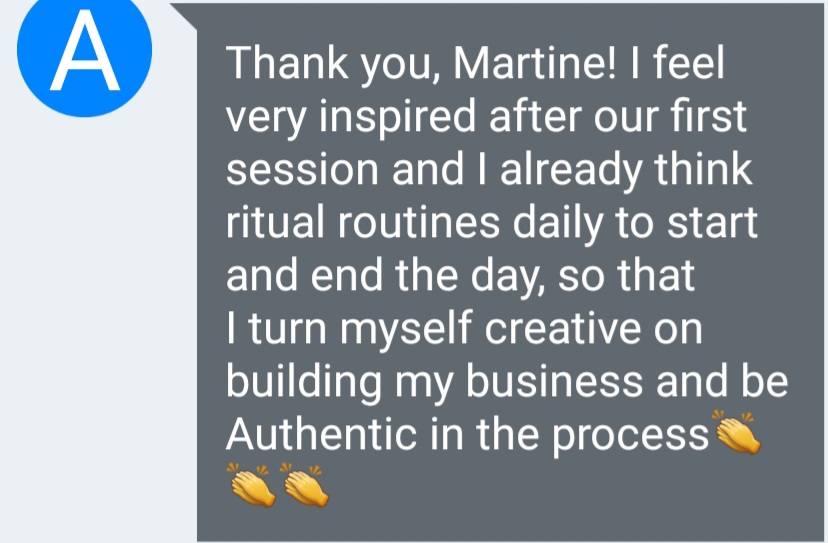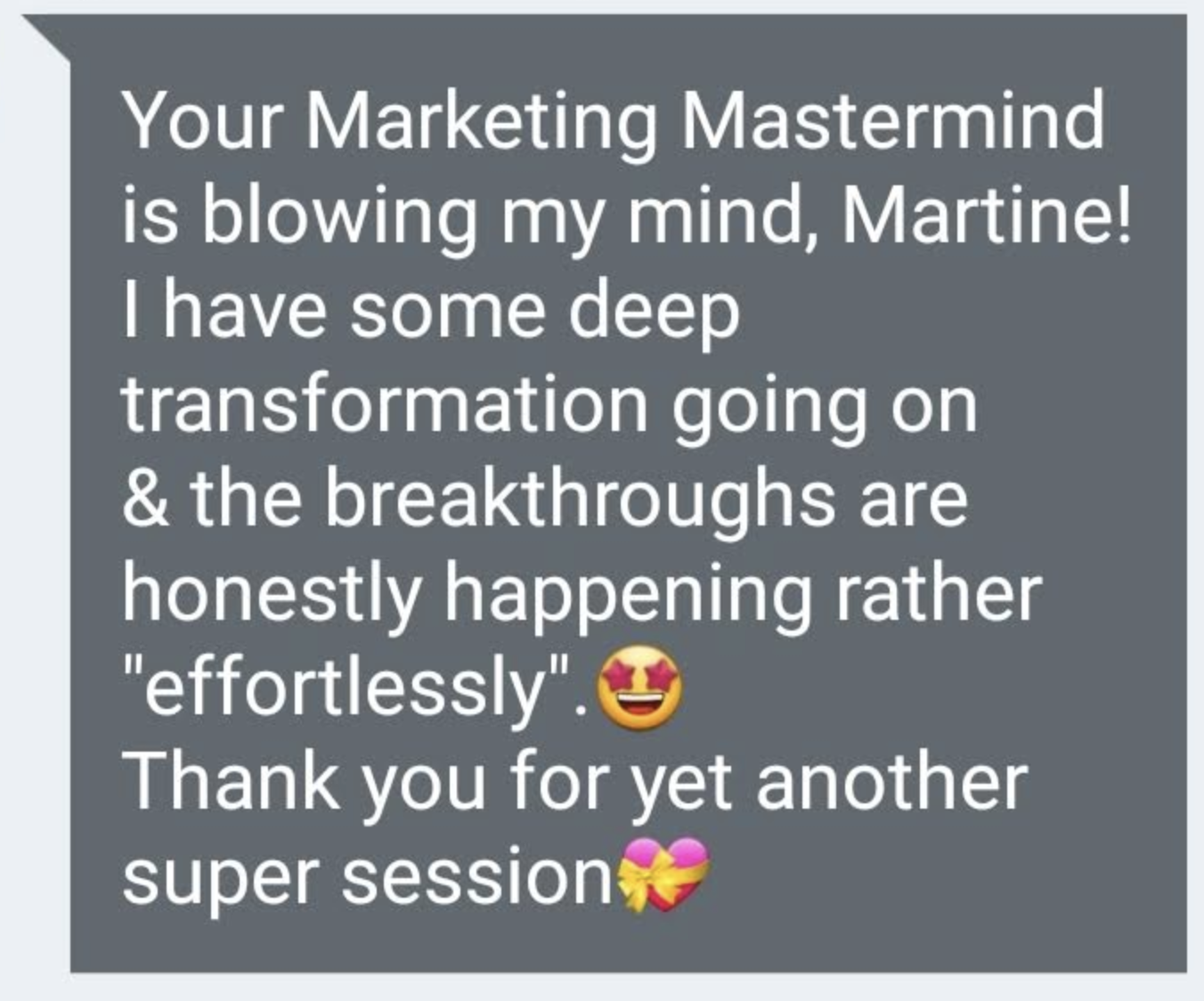Want more clients? With both marketing and mindset on point, it becomes inevitable
Stop spinning in confusion, let's make it happen!
Want more clients? With both marketing and mindset on point, it becomes inevitable
Stop spinning in confusion, let's make it happen!

Marketing coach for coaches


I'm Martine Thomassen
I'm a marketing coach for coaches, former digital marketing consultant (13 yrs), self development junkie and obsessed with entrepreneurship!
What's more? I'm an open minded, spiritually inclined, science loving travel enthusiast who who’s transformed deep self-worth issues into confidence and self-trust.
...and did I mention I'm multi-passionate? I'm here to help my fellow star-shaped coaches who don't fit into a square box grow their business and have the freedom they crave.



You are a brilliant coach ...and sometimes you might be asking yourself "if I'm so good at this, why am I not fully booked?"
Here's the thing, everyone has issues, and you have the best tools to help them. So, if you're not attracting clients, it's either a mindset or a marketing problem. That's it. And changing that is simple.

when soul level transformation meets strategic marketing


You showing up here? Not an accident. Consider this a cosmic wink, and a little gift just for you 😉

Podcast
You’re ready to sign more clients, and I’ve got your missing puzzle piece. Think of this podcast as your favourite coffee date meets business glow-up: marketing tips that actually works, mindset shifts that stick, and deep transformation that’ll have you showing up like the coach your dream clients have been waiting for. Grab your headphones and let’s do this! 🎧🔥
Listen in on:

What Clients Are Saying
© Copyright 2024. Martine Thomassen. All rights reserved.








